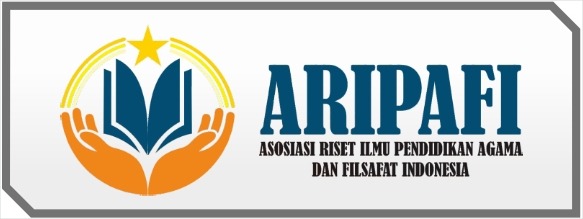Competency-Based and Ethical Assessment Models in Contemporary Islamic Pedagogy
DOI:
https://doi.org/10.61194/ijis.v3i1.710Keywords:
Islamic Education, Assessment Reform, Student-Centered Learning, E-Assessment, Competency-Based Evaluation, Cultural Integration, Teacher Professional DevelopmentAbstract
This narrative review explores recent innovations and systemic reforms in assessment practices within Islamic education, focusing on student-centered approaches, digital integration, competency-based evaluation, and the influence of cultural-religious values. The study employs a structured methodology involving database searches (Scopus, ERIC, Google Scholar), Boolean keyword combinations, and rigorous inclusion-exclusion criteria. The review synthesizes empirical findings from peer-reviewed literature, analyzing trends and best practices across global Islamic educational contexts. Key results indicate that authentic and formative assessments enhance student engagement and reflective learning. Digital tools, though unevenly adopted, improve efficiency and access. Competency-based reforms support a holistic appraisal of cognitive, affective, and spiritual dimensions of learning. Meanwhile, diverse interpretations of Islamic values lead to varied assessment practices across regions. Systemic enablers such as government policy, institutional frameworks, and continuous teacher training—especially through models like Lesson Study and self-assessment—are pivotal to successful implementation. Despite these advancements, challenges remain in digital infrastructure, educator readiness, and policy alignment. This review calls for comprehensive, culturally grounded, and scalable reforms, recommending greater investment in capacity-building and adaptive policy design. It underscores that learner-centered and ethically aligned assessments are essential to meet the pedagogical goals of Islamic education in the 21st century.
References
Al-Ansi, A. (2022). Reinforcement of student-centered learning through social e-learning and e-assessment. Sn Social Sciences, 2(9). https://doi.org/10.1007/s43545-022-00502-9 DOI: https://doi.org/10.1007/s43545-022-00502-9
Alkandari, K. (2022). Transformation to competency-based curriculum: readiness and self-efficacy among islamic studies teachers in kuwait. Curriculum Perspectives, 43(1), 67-79. https://doi.org/10.1007/s41297-022-00179-3 DOI: https://doi.org/10.1007/s41297-022-00179-3
Assalihee, M., Bakoh, N., Boonsuk, Y., & Songmuang, J. (2024). Transforming islamic education through lesson study (ls): a classroom-based approach to professional development in southern thailand. Education Sciences, 14(9), 1029. https://doi.org/10.3390/educsci14091029 DOI: https://doi.org/10.3390/educsci14091029
Bali, M. and Musrifah, M. (2020). The problems of application of online learning in the affective and psychomotor domains during the covid-19 pandemic. Jurnal Pendidikan Agama Islam, 17(2), 137-154. https://doi.org/10.14421/jpai.2020.172-03 DOI: https://doi.org/10.14421/jpai.2020.172-03
Ibda, H., Wijanarko, A., Azizah, F., Amnillah, M., & Ro'uf, A. (2024). Islamic moderation in elementary school: strengthening the aswaja annadhliyah curriculum in preventing religious radicalism. Journal of Education and Learning (Edulearn), 18(4), 1246-1253. https://doi.org/10.11591/edulearn.v18i4.21821 DOI: https://doi.org/10.11591/edulearn.v18i4.21821
Mardhiah, M., Musgamy, A., & Lubis, M. (2023). Teacher professional development through the teacher education program (ppg) at islamic education institutions. International Journal of Learning Teaching and Educational Research, 22(11), 80-95. https://doi.org/10.26803/ijlter.22.11.5 DOI: https://doi.org/10.26803/ijlter.22.11.5
Masuwai, A., Zulkifli, H., & Hamzah, M. (2024). Self-assessment for continuous professional development: the perspective of islamic education. Heliyon, 10(19), e38268. https://doi.org/10.1016/j.heliyon.2024.e38268 DOI: https://doi.org/10.1016/j.heliyon.2024.e38268
Masuwai, A., Zulkifli, H., & Tamuri, A. (2021). Systematic literature review on self-assessment inventory for quality teaching among islamic education teachers. Sustainability, 14(1), 203. https://doi.org/10.3390/su14010203 DOI: https://doi.org/10.3390/su14010203
Mustafa, M. (2024). The degree of implementation of authentic assessment strategies as estimated by islamic education teachers. An-Najah University Journal for Research - B (Humanities), 38(7), 1309-1336. https://doi.org/10.35552/0247.38.7.2235 DOI: https://doi.org/10.35552/0247.38.7.2235
Normand‐Marconnet, N. (2012). Is self-assessment a pedagogical challenge in an islamic context? a case study of iranian students learning french. International Journal of Pedagogies and Learning, 7(3), 200-210. https://doi.org/10.5172/ijpl.2012.7.3.200 DOI: https://doi.org/10.5172/ijpl.2012.7.3.200
Waty, E., Nengsih, Y., Handrianto, C., & Rahman, M. (2024). The quality of teacher-made summative tests for islamic education subject teachers in palembang, indonesia. Jurnal Cakrawala Pendidikan, 43(1). https://doi.org/10.21831/cp.v43i1.53558 DOI: https://doi.org/10.21831/cp.v43i1.53558
Mukhlis, H., Kristianingsih, A., Fitrianti, F., Pribadi, T., Kumalasari, D., Febriyanti, H., … & Maseleno, A. (2020). The effect of expressive writing technique to stress level decrease of new student at al-falah putri islamic boarding school, margodadi, tanggamus. ATMPH, 23(06), 192-200. https://doi.org/10.36295/asro.2020.23624 DOI: https://doi.org/10.36295/ASRO.2020.23624
Munawar, K., Ravi, T., Jones, D., & Choudhry, F. (2023). Islamically modified cognitive behavioral therapy for muslims with mental illness: a systematic review.. Spirituality in Clinical Practice. https://doi.org/10.1037/scp0000338 DOI: https://doi.org/10.1037/scp0000338
Noorbala, A., Maleki, A., Yazdi, S., Faghihzadeh, E., Hoseinzadeh, Z., Hajibabaei, M., … & Kamali, K. (2022). Survey on mental health status in iranian population aged 15 and above one year after the outbreak of covid-19 disease: a population-based study. Archives of Iranian Medicine, 25(4), 201-208. https://doi.org/10.34172/aim.2022.35 DOI: https://doi.org/10.34172/aim.2022.35
Nurbaeti, I., Lestari, K., & Syafii, M. (2023). Association between islamic religiosity, social support, marriage satisfaction, and postpartum depression in teenage mothers in west java, indonesia: a cross-sectional study. Belitung Nursing Journal, 9(4), 313-321. https://doi.org/10.33546/bnj.2661 DOI: https://doi.org/10.33546/bnj.2661
Rubino, R., Muda, I., Almedee, A., Alam, S., Ali, A., Sadikov, R., … & Панова, Е. (2023). Communication skills according to islamic teachings and students’ life skills. HTS Teologiese Studies / Theological Studies, 79(2). https://doi.org/10.4102/hts.v79i2.8623 DOI: https://doi.org/10.4102/hts.v79i2.8623
Saleem, T., Saleem, S., Mushtaq, R., & Gul, S. (2020). Belief salience, religious activities, frequency of prayer offering, religious offering preference and mental health: a study of religiosity among muslim students. Journal of Religion and Health, 60(2), 726-735. https://doi.org/10.1007/s10943-020-01046-z DOI: https://doi.org/10.1007/s10943-020-01046-z
Sawafi, A., Fotouhi, A., Al‐Adawi, S., Jaju, S., Qadire, M., & Azri, Z. (2024). Adverse childhood experiences (ace) and its association with mental health outcomes: cross sectional study. International Journal of Social Psychiatry. https://doi.org/10.1177/00207640241300950 DOI: https://doi.org/10.1177/00207640241300950
Tannerah, A., Hazel, O., Desson, S., Farah, R., Kamil-Thomas, Z., Iqbal, H., … & Bífárìn, O. (2024). Consultations with muslims from minoritised ethnic communities living in deprived areas: identifying inequities in mental health care and support. Health Expectations, 27(4). https://doi.org/10.1111/hex.14132 DOI: https://doi.org/10.1111/hex.14132
Uyun, Q., Kurniawan, I., & Jaufalaily, N. (2019). Repentance and seeking forgiveness: the effects of spiritual therapy based on islamic tenets to improve mental health. Mental Health Religion & Culture, 22(2), 185-194. https://doi.org/10.1080/13674676.2018.1514593 DOI: https://doi.org/10.1080/13674676.2018.1514593






